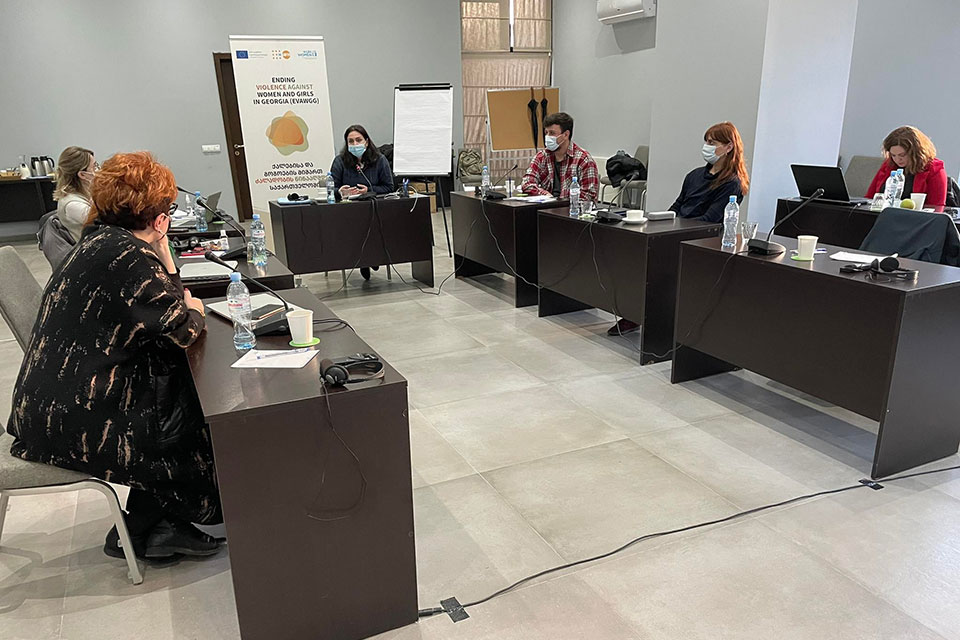UN Women promoting gender-sensitive media coverage
Date:

The ethical media coverage of women’s rights and LGBTQI issues makes a very significant contribution towards defying gender stereotypes and shaping sound public opinion. However, it is often particularly challenging for journalists to work on these topics and to produce gender-sensitive materials. That is why the systematic and regular training of media representatives, and the promotion of relevant standards and self-regulatory mechanisms still remain especially topical in Georgia.
Therefore, with the support of the European Union, UN Women and the Georgian Charter of Journalistic Ethics are actively collaborating to support the ethical, gender-sensitive coverage of women’s rights and LGBTQI issues. Within the framework of this cooperation, plans are being developed for the training of media representatives during the year.
Significantly, the training module is based on special guidelines intended for the media which will be published in the near future. The trainers themselves have already been instructed, and based on this module they will hold up to 20 training sessions in Tbilisi and in the regions of Kvemo Kartli and Guria. They have already held two workshops and discussed the topics of the module.
The participants considered such issues as the principles and importance of preparing gender-sensitive stories, examples of unethically prepared stories and the proliferation of discriminatory attitudes by the media. In addition, they discussed local and international cases, the role of social media and other important topics.
Nino Zautashvili, the author and host of the Real Space programme aired by the Public Broadcaster, shared her feedback after participating in the module: “In order to ensure that the opinion and information provided by you as a professional is reliable, you have to strictly adhere to the standards adopted globally. The standard, which has been tested over time and has turned into a self-regulation code, should be observed without fear or favour. In this respect, a very important meeting was held, during which we once again analysed the role of the media when working on sensitive topics.”
A further training module that journalists will attend also envisages sharing guidance on producing gender-sensitive stories, maintaining the principles of fair and balanced coverage, supporting the best experience of working on women’s and LGBTQI issues, as well as providing recommendations and other useful material.
This collaboration between UN Women and the Georgian Charter of Journalistic Ethics is part of the “Ending Violence Against Women and Girls in Georgia” project, implemented by UN Women and UNFPA with the support of the European Union.